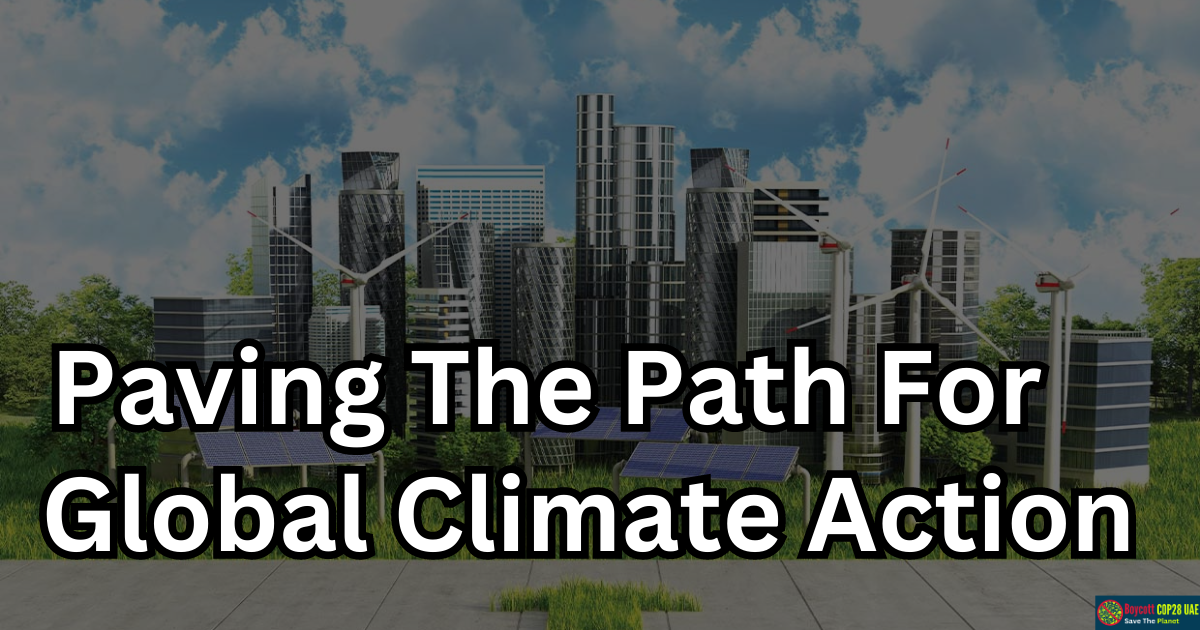The world’s attention is once again turning to the vital issue of climate change as the 2023 United Nations Conference of the Parties, popularly known as COP28, draws near. This momentous event brings together representatives from over 160 nations; all united in their determination to combat the adverse effects of human activity on the climate.
A flagship annual event, the International Climate Summit serves as a platform for world leaders, delegates, and advocates to negotiate and establish strategies for climate mitigation collaboratively. Following the successful conclusion of COP27 in Sharm El Sheikh, Egypt, in 2022, the focus now shifts to COP28 in Dubai, United Arab Emirates, where expectations are running high for impactful deliberations and agreements.
Mark your calendars for November 30 to December 12, 2023, as these dates mark the duration of COP28 in the vibrant city of Dubai. The overarching theme for this year’s conference is “Closing the Gaps to 2023,” with a particular emphasis on responding to the Global Stocktake. To ensure that the most crucial matters take center stage, the COP presidency has reached out to global stakeholders, urging them to highlight priority areas for COP28.
The themes chosen for this year encompass Technology & Innovation, Inclusion, Frontline Communities, and Finance. Among these, the significance of the built environment cannot be overstated, as it forms the bedrock of our daily lives – encompassing our living spaces, infrastructure, urban landscapes, and transportation systems.
Recognizing its pivotal role, BuildingToCop 28, a consortium of sustainability-focused NGOs, is laboring to position the built environment as a linchpin in achieving the climate goals set forth in the conference.
Notable progress was made in COP27, where flagship events centered around building resilience, decarbonization, financial mechanisms, and resource management. A case in point was the panel discussion on “Financing a Net-zero Built Environment,” expertly hosted by WBCSD, which delved into the integral role of urban planning in climate adaptation.
Casting our gaze back to COP26 in Glasgow, Scotland, we witnessed nations coalescing to confront the ambitious target of limiting worldwide warming to 1.5 degrees Celsius, as laid out in the Paris Agreement. New initiatives and long-term aspirations aimed at achieving net-zero emissions by 2050 were forged during this pivotal gathering. This iterative process of refining proposals each year underscores the commitment of global leaders to address the climate crisis tangibly.
Critiques Against UAE’s COP28 Host Role
While anticipation runs high for the upcoming COP28 in Dubai, critics have voiced concerns about the suitability of the United Arab Emirates (UAE) as the host nation. Chief among these concerns are the country’s human rights record and its environmental performance, particularly regarding air pollution. Detractors argue that a nation with a track record of human rights issues may not be the optimal setting for a conference that emphasizes global cooperation and sustainability. The absence of fundamental freedoms and restrictions on civil society activities in the UAE has led to apprehensions about the inclusivity and transparency of discussions at COP28.
Furthermore, air pollution has emerged as a contentious issue within the UAE, casting a shadow on its credentials to host a gathering that seeks to address climate change. Despite efforts to diversify its economy and promote renewable energy, the country remains heavily reliant on fossil fuels, resulting in elevated levels of pollution and carbon emissions. Critics argue that hosting an event dedicated to combating climate change in a nation grappling with such pollution challenges sends mixed signals and undermines the credibility of the conference’s objectives.
The Takeaway
In conclusion, the 2023 United Nations Conference of the Parties (COP28) is poised to be a pivotal moment in the ongoing global effort to combat climate change. As nations gather in Dubai to deliberate on strategies for climate mitigation, the built environment takes center stage as a critical pillar for achieving these goals. While expectations are high, criticisms have been raised about the suitability of the UAE as the host nation, citing concerns related to human rights and air pollution. It remains to be seen how these debates shape the outcome of COP28 and whether global collaboration will triumph over these challenges.






